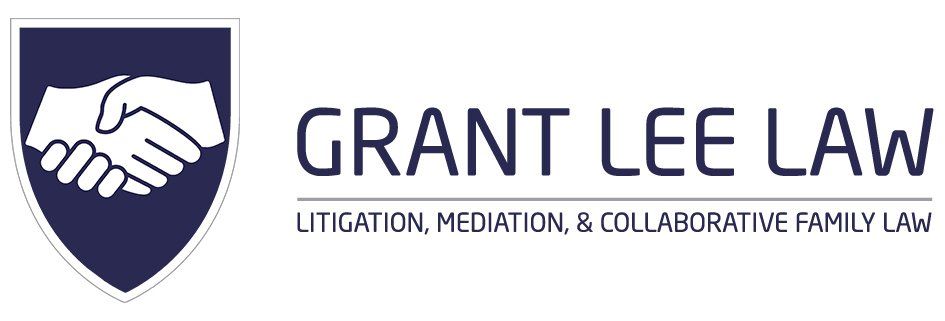November 30, 2025
Mediation can be a constructive path forward when navigating a divorce or custody case. It offers a private, less adversarial setting to resolve disputes compared to a traditional court battle. However, walking into mediation unprepared can lead to frustration, stalled progress, and an unfavorable outcome. Treating it as a formal and significant step in your legal journey is the key to success. This guide will walk you through how to prepare effectively for your mediation session. We will cover the essential documents you need, how to define your goals, and the mindset required for a productive conversation. Why Preparation is Your Greatest Asset Many people mistakenly believe they can simply show up and talk things through. This approach rarely works. Mediation is a structured negotiation, and the person who is better prepared often has a distinct advantage. Being prepared accomplishes several things: ● It builds confidence: Knowing your facts, figures, and priorities reduces anxiety and helps you communicate clearly. ● It saves time and money: When both parties are organized, the mediator can focus on finding solutions instead of spending billable hours sorting through disorganized information. ● It demonstrates seriousness: A well-prepared party shows the mediator and the opposing side that they are invested in reaching a fair agreement. ● It protects your interests: Preparation ensures you don’t forget a crucial asset, overlook a potential debt, or agree to a parenting plan that isn’t feasible. Step 1: Gather Your Essential Documents Your arguments and proposals must be backed by evidence. Start collecting and organizing your financial and personal documents well before the mediation date. Having these papers on hand allows you to answer questions accurately and support your position with facts, not just feelings. Financial Documentation Create a comprehensive file of your financial life. This should include: ● Proof of Income: Recent pay stubs, W-2s, or 1099s for the last two to three years. If you are self-employed, gather your business profit and loss statements. ● Tax Returns: At least three years of personal and business tax returns. ● Bank Statements: Statements for all checking and savings accounts for the past year. ● Retirement and Investment Accounts: Recent statements for 401(k)s, IRAs, pensions, and brokerage accounts. ● Property Information: Deeds, mortgage statements, and property tax bills for any real estate. Include recent appraisals if available. ● Debt Statements: Documents for credit cards, car loans, student loans, and any other personal or joint debts. ● Major Asset Valuations: Appraisals or estimates for valuable items like art, jewelry, or collectibles. Custody-Related Documentation If child custody is part of your mediation, gather information related to your children's lives. ● Children’s Schedules: School, extracurricular activities, and regular appointments. ● Child-Related Expenses: A detailed list of costs for childcare, health insurance, school tuition, sports, and other activities. ● Communication Records: Relevant emails or text messages that illustrate co-parenting successes or challenges. ● Proposed Parenting Plan: A written outline of your ideal custody schedule, including holidays and vacations. Step 2: Define Your Priorities and Goals You cannot get what you want if you do not know what it is. Before mediation, take time for honest self-reflection. What are your absolute must-haves, and where are you willing to be flexible? Create a "Best, Acceptable, and Worst" Case Scenario List Think about each major issue—asset division, alimony, child support, parenting time—and outline three potential outcomes: ● Best Case: Your ideal, most desired outcome. ● Acceptable Case: A compromise you can live with, even if it's not perfect. ● Worst Case: Your absolute bottom line, the point beyond which you would rather go to court. This exercise helps you identify your non-negotiables and areas where you can compromise. It transforms a vague sense of want into a concrete negotiation strategy. For example, staying in the marital home might be your "best case," but an "acceptable case" might be receiving a larger share of retirement assets to secure new housing. Step 3: Adopt the Right Mindset Your attitude is just as important as your paperwork. Mediation is not about winning or losing; it is about finding a mutually agreeable solution. Be Open to Compromise Both parties will need to give something up to reach a resolution. If you enter the room with a winner-take-all mentality, you are setting the stage for failure. Focus on finding common ground and creative solutions that address both your needs and the other party's needs. Manage Your Emotions Divorce and custody discussions are emotionally charged. While your feelings are valid, letting anger or resentment drive your decisions will sabotage the process. Practice staying calm and focus on the facts. If you feel overwhelmed, it is okay to ask the mediator for a short break to collect yourself. Listen Actively Pay attention to what the other party is saying. You might hear an underlying interest or a new idea that opens the door to a solution you hadn't considered. Listening does not mean you agree, but it shows respect and fosters a more cooperative atmosphere. Seek Professional Guidance Navigating mediation alone can be daunting. Having an experienced family law attorney on your side provides invaluable support. An attorney can help you understand your legal rights, prepare your financial disclosures, and develop a sound negotiation strategy. For those in our community, Janet Grant-Lee at Grant Lee Law is a trusted resource who specializes in helping clients prepare for and navigate the mediation process. An attorney can advise you on what constitutes a fair settlement and ensure the final agreement is legally sound and protects your future. Set Yourself Up for Success Mediation offers a powerful opportunity to shape your future on your own terms. By investing time in thorough preparation—gathering documents, clarifying your priorities, and adopting a cooperative mindset—you significantly increase your chances of reaching a durable and fair agreement. This preparation empowers you to negotiate from a position of strength and clarity, turning a challenging process into a constructive step toward your new beginning.








